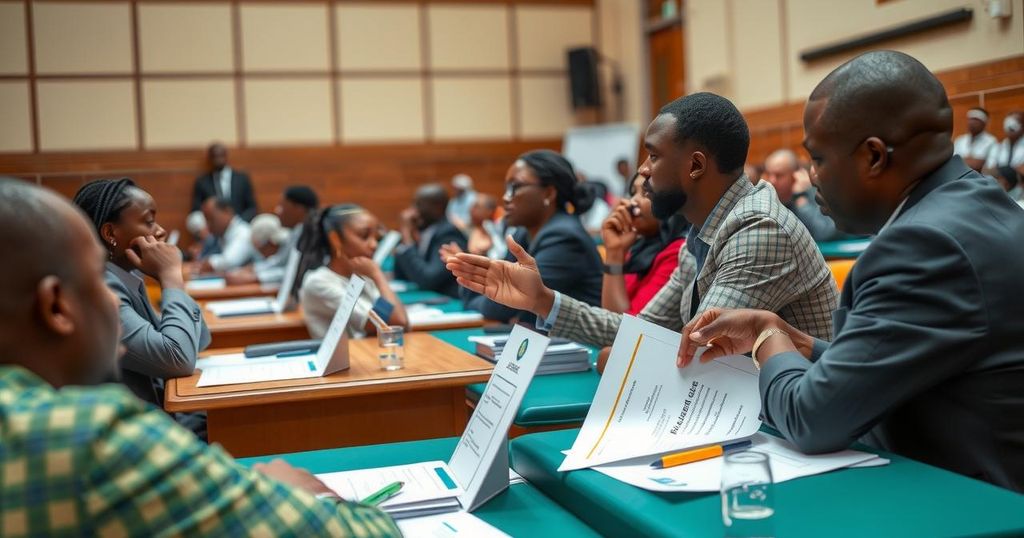Voting is ongoing in Chad’s first parliamentary election in 13 years, seen as a key move towards democracy. Opposition parties have called for a boycott, citing pre-determined election results. Despite low turnout in the capital, the government claims high participation among military and nomadic communities. Security issues persist, casting shadows on the electoral legitimacy as the country attempts to transition from military rule.
Voting is currently underway in Chad’s first parliamentary election in thirteen years, a significant event viewed by the government as a pivotal move towards restoring democracy following an extended period of military rule. This election provides voters with the opportunity to select representatives for a new parliament, provincial assemblies, and local councils. However, opposition parties have initiated a boycott, urging the population to refrain from participating due to concerns over election integrity, alleging that the outcomes have been predetermined by the ruling government.
Despite a low turnout observed in the capital, N’Djamena, government representatives attributed this voter apathy to unfavorable weather conditions. Opposition leaders, including Succes Masra, head of the Transformers party, publicly stated, “The fabricated results are already in the computers,” signaling deep skepticism regarding the legitimacy of the electoral process. Conversely, President Mahamat Idriss Deby Itno, who rose to power in 2021, has encouraged citizens to vote, referring to this moment as a historic opportunity for civic engagement.
In the lead-up to the election, numerous reports indicated a pronounced discontent among the population regarding economic conditions, with many citizens hoping for improvements in employment, price stability, and social justice. Voter turnout among military personnel and nomadic communities was reported to be high, with the electoral agency claiming recorded participation rates exceeding seventy-two and fifty-four percent, respectively. These communities have voiced their demands for better living conditions in light of challenges posed by climate change and resource scarcity.
As the polling process continues, it is being closely monitored by foreign election observers and representatives from various political factions, highlighting the significance of this election amid ongoing security challenges, including threats posed by Boko Haram in the Lake Chad region. The ruling Patriotic Salvation Movement is faced with allegations of electoral misconduct, underscoring the contentious nature of this electoral event.
This election serves as a decisive step in Chad’s long-term aim to transition towards democratic governance, following decades of autocratic rule initiated by the previous administration of President Deby’s father. Nevertheless, the opposition consistently critiques the legitimacy of this process, maintaining that the government is orchestrating the results to remain in power indefinitely.
The political climate in Chad has been fraught with challenges since the military took control following the death of President Idriss Deby in 2021. The current administration, led by his son Mahamat Idriss Deby Itno, has sought to project stability and a transition to democratic governance despite significant opposition. This parliamentary election, the first in over a decade, is viewed as an essential step toward achieving these goals, yet it is marred by dissent and allegations of prearranged outcomes, revealing a deep-seated mistrust between the government and opposition factions.
Chad’s first parliamentary election in over a decade is a crucial juncture in its political history, yet it is overshadowed by opposition boycotts and accusations of electoral fraud. With President Deby calling for mass voter turnout amidst low participation, the legitimacy of the electoral process remains in question. As the nation strives for a transition to democracy, the outcome of this election will significantly impact Chad’s political landscape and governance approach moving forward.
Original Source: www.aljazeera.com






